Special Day Conference, BU at the Freud Museum:
‘Powerplay: Psychoanalysis and Political Culture’

We are surrounded by political culture as never before and yet, in some ways have never felt so powerless. The recent Brexit vote ( see: http://bit.ly/EUReferendumAnalysis2016_Jackson-Thorsen-and-Wring_v1) and the victory of Trump in the US Presidential election (US Election Analysis website) have foregrounded the significance of politics as a field of social and cultural contestation, shaped by the dynamics of power, history and material interest, but also by the irrational forces of emotion and processes of unconscious fantasy. In December 2016, the BU Centre for Politics and Media collaborated with the Freud Museum, and the Media and Inner World research network to host a special conference on different aspects of political culture today.
The conference was held at the Anna Freud Centre and the Freud Museum, London and it brought together some renowned figures to look at a broad idea of political culture and psychoanalysis, discussed as history, as a state of mind, as televisual culture and as being linked to political practice. Throughout the course of the day, the conference looked at these different areas, and how those spheres feed into the political imagination and the unconscious processes that shape it.
The day began with organizer, Professor Candida Yates (biog) who in her opening remarks, developed the themes of her recent book, The Play of Political Culture, Emotion and Identity (Palgrave Macmillan) by discussing the psychodynamics of political culture, focusing as a case study on the relationship between shame and the emotional appeal of Donald Trump for voters.
BU Professor Barry Richards (biog) then chaired the first full session of the day with the renowned cultural historian, Professor Eli Zaretsky (biog). He discussed ‘The Three Faces of Political Freud’ and the hisorical influences of psychoanalysis upon political social movements (abstract).
The second presentation was given by Psychoanalyst and Organisational Consultant, Philip Stokoe (biog), who presented a psychoanalytic approach to understanding the states of mind in societies that can produce Brexit and Trump (abstract)
In the afternoon, BU Professor, Iain MacRury (biog) interviewed the acclaimed TV screenplay writer, Andrew Davies (biog), who discussed the experience of writing TV drama House of Cards and its links to the theatre of politics in ‘real life’.
In the final session, Psychotherapist and TV and radio broadcaster, Professor Brett Kahr (biog) interviewed Baroness, Professor Sheila Hollins (biog) about the day to day culture of working as a female politician in the House of Lords. As an Independent member of the House of Lords, she speaks on mental health, disability and press regulation and she spoke in a highly compelling way about the experience of her work in those fields.
The conference was fully booked and the audience was made up of psychotherapists, analysts and academics and PhD students from the fields of politics, history, cultural studies and psychosocial studies. Students from the BU MA in International Political Communication also attended and contributed to the discussions that took place throughout the day.
The talks were recorded on podcast and so there will be an opportunity to catch up via the Freud Museum website: https://www.freud.org.uk/events/76650/power-play-psychoanalysis-and-political-culture/
Our thanks to the Centre for Politics and Media and the Freud Museum for hosting and partly funding this timely and enjoyable event.
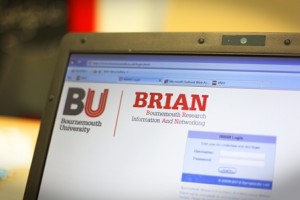 BRIAN will be upgrading to a new version in 3 weeks time. The main improvements from this upgrade include:
BRIAN will be upgrading to a new version in 3 weeks time. The main improvements from this upgrade include:
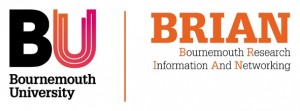 We are happy to inform you that Bournemouth Research Information and Networking System (BRIAN) will be upgrading to a new version next month.
We are happy to inform you that Bournemouth Research Information and Networking System (BRIAN) will be upgrading to a new version next month. Then come along to one of the Writing Academy’s “My publication story so far…” lunchbyte sessions.
Then come along to one of the Writing Academy’s “My publication story so far…” lunchbyte sessions. As part of the Writing Academy, a series of writing days have been organised to help support BU authors work on their
As part of the Writing Academy, a series of writing days have been organised to help support BU authors work on their  On Wednesday 29th March, the Writing Academy will be hosting a Lunchbyte session with Matthew Bennett. During the session Matthew will talk about his personal publishing experience, his approaches to research and writing, his tips on developing a publication strategy and working with co-authors, reviewers and editors. He will talk about all types of publishing from journal articles, to books via edited compilations. Drawing on personal experience, he will also focus on how you target high impact journals.
On Wednesday 29th March, the Writing Academy will be hosting a Lunchbyte session with Matthew Bennett. During the session Matthew will talk about his personal publishing experience, his approaches to research and writing, his tips on developing a publication strategy and working with co-authors, reviewers and editors. He will talk about all types of publishing from journal articles, to books via edited compilations. Drawing on personal experience, he will also focus on how you target high impact journals. In December, Prof Mark Reed,
In December, Prof Mark Reed, 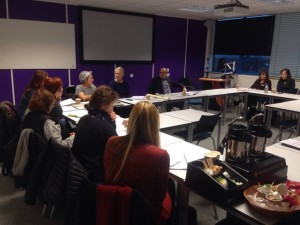

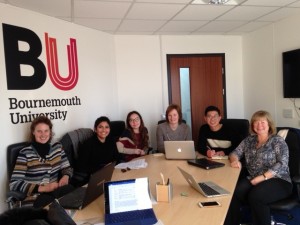

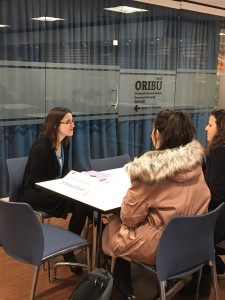





 Open access to peer reviewed publications has been anchored as an underlying principle in the Horizon 2020 and is explained in the
Open access to peer reviewed publications has been anchored as an underlying principle in the Horizon 2020 and is explained in the  When should Open Access be provided
When should Open Access be provided BU has subscribed to SciVal and staff and students may access it
BU has subscribed to SciVal and staff and students may access it 










 Dr. Chloe Casey on Sky News
Dr. Chloe Casey on Sky News Final Bournemouth University publication of 2025
Final Bournemouth University publication of 2025 On Christmas Day in the Morning…
On Christmas Day in the Morning… New Nepal scoping review on maternal & neonatal health
New Nepal scoping review on maternal & neonatal health ECR Funding Open Call: Research Culture & Community Grant – Application Deadline Friday 12 December
ECR Funding Open Call: Research Culture & Community Grant – Application Deadline Friday 12 December MSCA Postdoctoral Fellowships 2025 Call
MSCA Postdoctoral Fellowships 2025 Call ERC Advanced Grant 2025 Webinar
ERC Advanced Grant 2025 Webinar Horizon Europe Work Programme 2025 Published
Horizon Europe Work Programme 2025 Published Horizon Europe 2025 Work Programme pre-Published
Horizon Europe 2025 Work Programme pre-Published Update on UKRO services
Update on UKRO services European research project exploring use of ‘virtual twins’ to better manage metabolic associated fatty liver disease
European research project exploring use of ‘virtual twins’ to better manage metabolic associated fatty liver disease